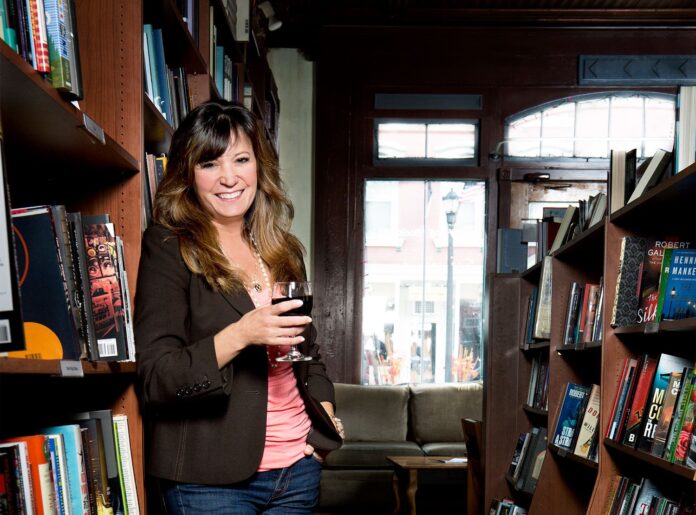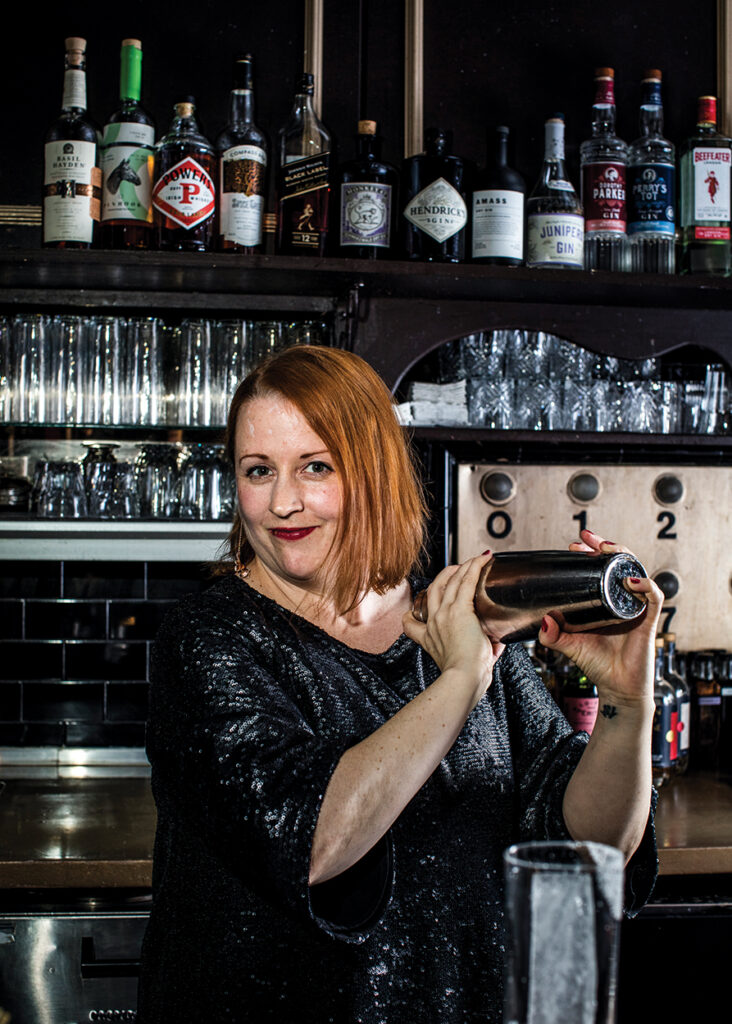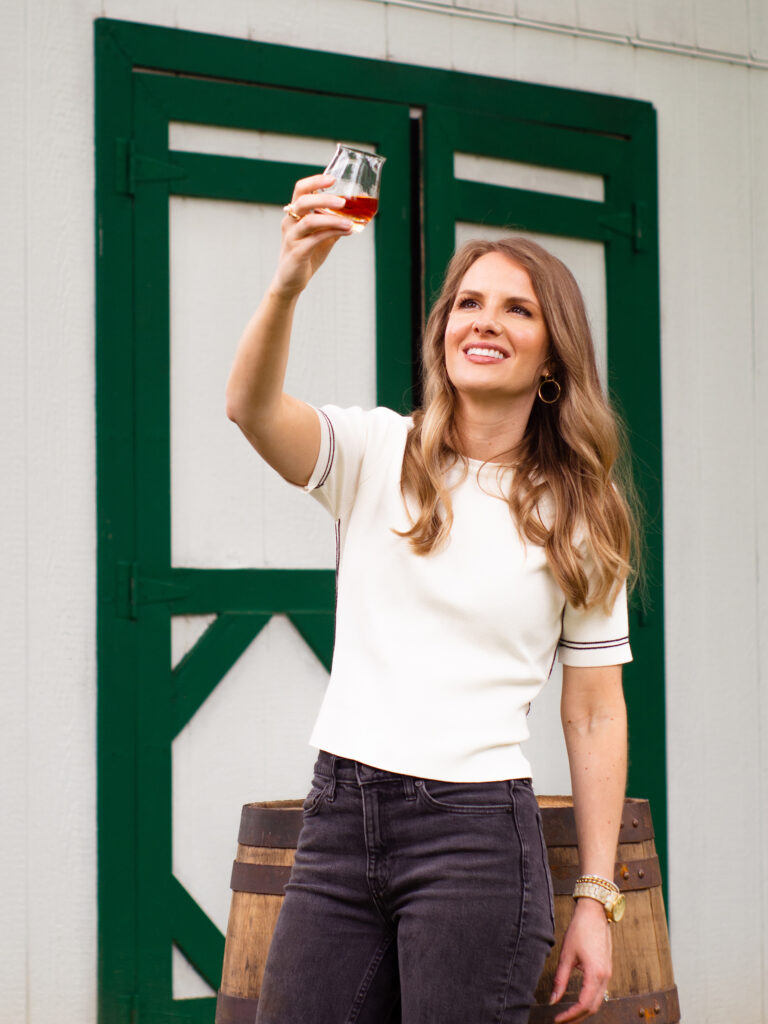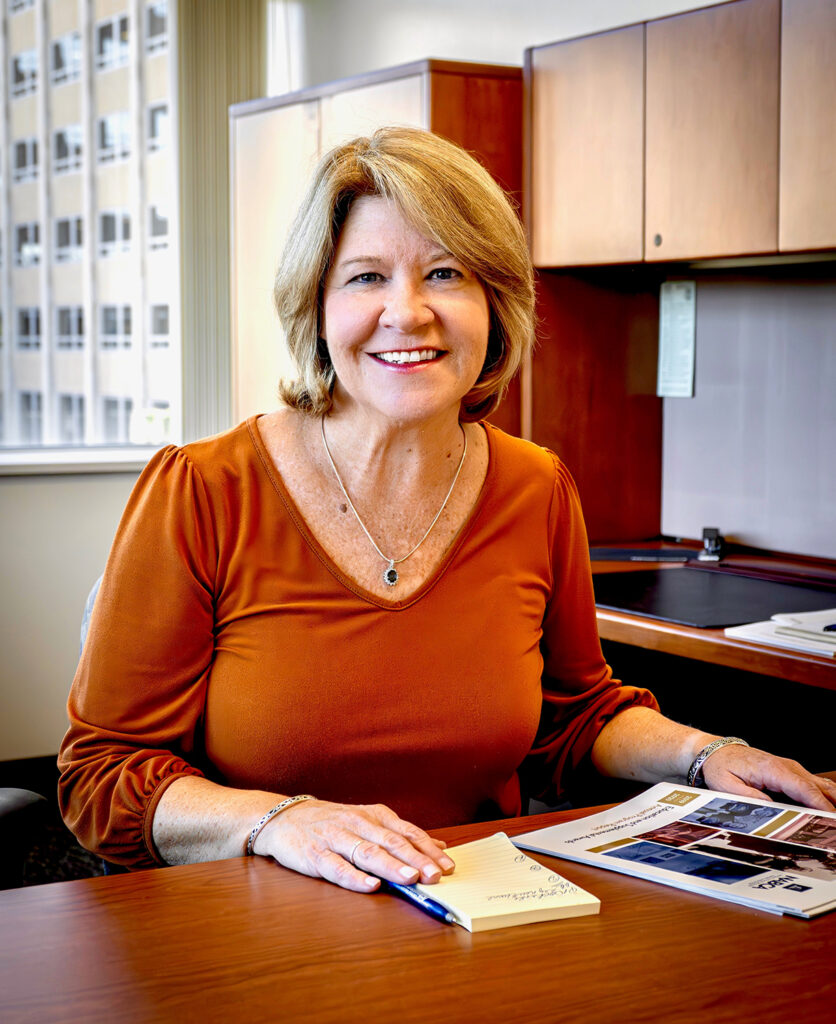
Women have played key roles in the beverage alcohol business from the beginning, though they haven’t always received the credit they deserved. That’s been changing in the past decade or two, however. While there is considerable work to be done on this front, the new generation of women entering the industry have plenty of female role models in leadership positions, who have helped pave a smoother way for them.
We reached out to some of the influential women in beverage alcohol today to learn more about their backgrounds, inspirations and role models, and what it means to be a leader in the industry today. Here’s what they had to say.
Deborah Brenner
Founder/CEO, Women of the Vine & Spirits; president, Women of the Vine & Spirits Foundation; founder/CEO, Diverse Powered Brands
How did you get into the beverage alcohol business?
After spending 20 years in the male-dominated television and film technology industry I decided to transition to pursue my passion, working in the wine industry.
Unfortunately, I was quickly struck by the reality that the beverage alcohol industry was also overwhelmingly white male dominated. While there some women involved in key aspects, their stories and legacies were significantly under-represented.
This inspired my book, Women of the Vine: Inside the World of Women Who Make, Taste and Enjoy Wine in 2006. I became inspired to enter the wine business myself, releasing wine from a collective of seven artisan women winemakers from Napa, Sonoma and Paso Robles, CA. For seven years, I learned the business inside and out, however, I ultimately could not foster women in the wine industry the way I had hoped, leading me to dissolve the wine brand and return to the drawing board.
In March 2015, I organized the Inaugural Women of the Vine & Spirits Global Symposium, bringing women and male allies together to focus on actions the beverage alcohol industry could make to change the status quo. The attendees eagerly supported the opportunity to connect through a global network, and it was clear to me that to make a positive impact on the beverage alcohol industry, women needed a voice year-round. Women of the Vine & Spirits was quickly launched as an all-encompassing organization working to further diversity, equity and inclusion in beer, wine, and spirits.
This past year, I launched Diverse Powered Brands, a centralized B2B global marketplace connecting diverse-owned, diverse-led and diverse-made brands to buyers, wholesalers, and supplier diversity managers across the entire beverage alcohol and hospitality industry. Through conversations with my network and after analyzing the data, I recognized that buyers who were looking for diverse brands didn’t have a centralized place to discover them, and suppliers who were making amazing products were simply not being noticed.
Did you have a mentor in the industry? Have you been a mentor to others?
Steve Slater and Mel Dick at Southern Glazer’s Wine & Spirits are two male allies who have been incredibly supportive of my career, providing guidance and advice as I have launched new companies, programs, and initiatives.
I have also received outstanding mentorship from Cynthia Lohr, J. Lohr Vineyards, Béatrice Cointreau, byBC Ventures and Maggie Henriquez, Krug Champagne. Having these women as part of my own personal “board of directors” has had an immense impact on my career trajectory and success as an entrepreneur.
I believe it is imperative for women to have multiple mentors, some for inspiration and encouragement, and others to lean on for professional advice and expertise. I also believe that having mentors both in the industry and outside the industry is invaluable – having different perspectives will only further support your growth as a leader.
I have provided mentorship to women working throughout the three-tier system, across various leadership levels. I have found incredible value in building relationships with mentees, constantly struck but how much I have to learn from them.
Have you faced challenges as a woman in a leadership position in what’s still a male-dominated industry?
I experienced being overlooked, spoken over and dismissed. I experienced and witnessed so many challenges, to name a few — unconscious bias, sexual harassment, gender pay inequality, lack of leadership training and succession planning for women, microaggressions, unfair expectations for work/family balance. For women of color, LGBTQIA+ individuals, and other marginalized groups, barriers are even more significant.
While I was disillusioned by yet another male-dominated industry, this time I was determined to change it from the inside out. Over the last 15-plus years as a social entrepreneur, I have witnessed incredible progress, though we still have a long way to go. I am so proud to be part of the change.
How has your company benefited from having women at the table making decisions?
Countless studies have demonstrated that having a diversity of thought, opinion and lived experience in a room is not only the right thing to do, but it’s good for business. Diverse teams show significant returns on their investments and are proven to be more successful. I am proud to work with such a diverse group of individuals and have such a collaborative team.
Do you think the beverage alcohol industry has improved as far as women and gender DEI in the past five years?
I am very grateful that diversity, equity and inclusion is now at the forefront of our attention in many ways as a society. For companies small and large, DE&I has become a business imperative. However, we need more initiatives to help with implementation and long-term success.
We need more education and engagement. We need to talk about economic inclusion as part of DE&I and make sure money is getting into the hands of women, people of color, LGBTQIA+ communities, and other historically marginalized groups.
What advice do you have for people (women in particular) looking to get into the spirits industry?
Network, network, network. Don’t be afraid to reach out and ask questions. So often women suffer from imposter syndrome, fearing that if they don’t know all the answers, they are not good enough. It is imperative that women are uplifting one another, providing guidance and support in community.
Women of the Vine & Spirits was built to create a platform for women and male allies to have candid conversations about the industry, collaborate and connect. We welcome all to the conversation and have a plethora of resources to provide support to those just entering the industry or looking to transition roles.
Meaghan Dorman
Bar director, Raines Law Room, Dear Irving
How did you get into the beverage alcohol business?
I began bartending in college for a wonderful boss named Susie that ran a bar in New Haven, CT. I have always loved the energy of bars, and while I worked in music and publishing when I moved to New York, I found myself getting back to it full time. With craft cocktails becoming popular there was a creative element that I loved combined with hospitality.
Did you have a mentor in the industry? Have you been a mentor to others?
I don’t have a formal relationship, but I have a close community of women in this industry that serve as my sounding board and cheer squad, and I am the same to them.
Have you faced challenges as a woman in a leadership position in what’s still a male-dominated industry?
Like many women, I have been underestimated or assumed there is “someone else” to talk to, but I have always made an effort to stay grounded in the type of leader I want to be and my genuine personality. Perhaps it’s been a slower burn than other routes might have been, but I am proud of my path and the community I’ve built.
How has your company benefited from having women at the table making decisions?
I can only speak to my experience, but I see hospitality in very holistic lens. It’s not just the drinks, but the ambience, the morale of the team and finding creative outlets in a repetitious service.
I believe all this and more has given Raines Law Room the staying power that it has. We take it very seriously that we are in the background of some of the most magical nights for people, and when I talk about the feeling of a place as much as the data of pours and costs, it’s embraced wholly.
Do you think the beverage alcohol industry has improved as far as women and gender DEI in the past five years?
When I was getting started in the craft cocktail scene, it took a lot of cues from fine dining in terms of the formality and Euro-centric approach to what’s considered premium or the “right” way to serve guests. Spirits and cocktails come from all over the world and are often a point of pride from the culture or country they comes from.
I do see that there is more embracement of a global perspective. I think there can be more diversity in who is at the top of decision making, especially in the big portfolio companies. And that means they need to open to change on the inside and not just celebrating change-makers through programming and events.
What advice do you have for people (women in particular) looking to get into the spirits industry?
I would say first that there is no shortcut to experience. So much of hospitality on the bar side is human interaction — which is never the same twice, but we can always learn what communication style works, how to elevate an experience, how to actively listen, and so on. That element never stops for me.
I also think it’s important to soak up knowledge from people whose career you admire, but with the mindset that you’re weaving that into your own quilt. Think about what feels right and authentic to you, and round it out with what advice speaks to you.
Shalyn Gammon
Whiskey director, Blue Run Spirits
How did you get into the beverage alcohol business?
I began my spirits career in a fundamental role at Campari Group as the R&D Specialist, based in Kentucky at the Wild Turkey Distillery. This experience was akin to earning a master’s degree to complement my degree in food science, as I was exposed to so much and learned a great deal from the Russells (master distillers Jimmy and Eddie Russell) and my outstanding mentor Norm Matella.
I became the main developer for most of Campari Group’s brands across the North American portfolio, which submerged me headfirst into the very different worlds of American whiskey, vodka, tequila and rum. Unlike a lot of behind-the-scenes work that food and beverage scientists typically do, I found myself working closely with the brand marketing teams and thus began speaking a specific language — one that fell squarely between the technical world of spirits innovation and the consumer-driven world of brand marketing.
This made me a stronger product developer, as I more closely understood the consumer insights that were driving innovation choices. I soaked up everything I could while at Campari and had amazing mentors and supporters along the way. When a dream-like position became available at Blue Run to become their first official hire as their whiskey director, I knew this was the opportunity of a lifetime with a chance to apply everything I’ve learned into a budding company.
Did you have a mentor in the industry? Have you been a mentor to others?
I can’t tell you enough how grateful I am to everyone I have met on this incredible journey who has offered words of advice or encouragement. It is something I really love about folks in the whiskey industry: They truly take care of their own.
I wouldn’t be here today if it weren’t for the likes of the legendary Jimmy Russell or the incomparable Peggy Noe Stevens. Peggy is a living legend and has gone out of her way to support me in numerous ways. Knowing her is an absolute privilege. Working alongside other amazing women, like fellow scientist Meghan Mattingly at Bardstown Bourbon Co., is inspiring and keeps it fun.
I learn something every day from folks like Jim Rutledge as I work with him at Blue Run, and I do my best to take everything I have learned and share it with anyone who wants it. I remember how valuable that was to me when I was starting out and I want to share that in hopes of building as broad and diverse a whiskey community as possible.
Have you faced challenges as a woman in a leadership position in what’s still a male-dominated industry?
This topic comes up frequently with other women in the industry and I know that women, unjustly, face challenges every single day trying to prove our legitimacy in our roles. I do think in many ways the specificity and complexity of my role as a scientist keeps some of the opinionated people at arm’s distance.
However, all women in this industry have to work around the pre-conceived notions some people have, that when we walk into a meeting, the older male is most often considered the most experienced or knowledgeable in the room, and that is not always the case. I’ve experienced this and know that I owe it to myself and the other women to continue to insert myself thoughtfully and assertively into the conversation as we all work toward a more balanced playing field.
How has your company benefited from having women at the table making decisions?
Let’s start with the fact that women have more olfactory receptors than men! But seriously, Blue Run’s vision was always to create a whiskey for today’s younger, more diverse whiskey drinker. For that to work, that vision needed to also be reflected in who was on the other side at the company itself.
Blue Run walked the walk and talked the talk, with me leading whiskey development and Chelsea Catania leading sales, as just two examples. I am not going to characterize it that women bring some magical knowledge or skills to the table. I would rather view it as there are women who are the best in the business and you should hire them because of that, looking past the misconception that a woman can’t perform at the same level as a man, which is a particularly dated trope in the spirits industry.
Do you think the beverage alcohol industry has improved as far as women and gender DEI in the past five years?
To an extent. You certainly see more women in leadership roles today than you did just five years ago. That is really encouraging and empowering. The biggest disconnect I see is that many companies will say the right things publicly and even likely have the best intentions, but following through with what they’re saying doesn’t always happen.
Blue Run has made a big commitment to backing up their talk and I hope this approach is infectious. Giving women the opportunity to handle roles they are certainly capable of handling and respecting and elevating their expert opinions is a great place to start. In doing this, women will have one less roadblock and will gain confidence, opening the door wider for other women to enter. The industry can only benefit from including and respecting as many diverse opinions as possible.
What advice do you have for people (women in particular) looking to get into the spirits industry?
My number-one piece of advice to women looking to get into the spirits industry is to be yourself and be uncompromisingly proud of that. Don’t try to conform to what you think the men in the room want to see or hear. The ones who look past your sex to fully appreciate your knowledge and abilities are the ones you truly want to work with. I have seen too many women change who they are and jump over a million barrels to appease someone in power only to discover all that hard work only benefited that person and not the woman who helped them climb the corporate ladder.
For folks looking to get into the industry, I would suggest not to wait for the dream job or the opportunity of a lifetime to come along. Instead, seek to enter the industry through any job, even if it’s not your first choice.
This way, you’ll at least be in the industry and/or by proximity, can begin to figure out what space you really would like to be in within the industry and can make moves towards that.
Kristin Beltzer
Chair, Michigan Liquor Control Commission
How did you get into the beverage alcohol business?
Prior to joining the Michigan Liquor Control Commission (MLCC) in 2022, I spent many years working with the business community at the Lansing Regional Chamber of Commerce, as well as in several leadership roles in the Michigan political arena. Stepping into the nuances of the beverage alcohol industry was a natural fit for me. My background in executive management has provided me the tools and relationships to help move the industry forward and to understand the regulation and governance of the three-tier system.
Did you have a mentor in the industry? Have you been a mentor to others?
I have been very fortunate to have mentors who have influenced me throughout my entire career. Many of them have been successful women who faced their own challenges in the workplace and in the boardroom.
The communication that we have shared and continue to share, helps me in my journey to be a life-long learner.
Just as important, I find great fulfillment in watching others succeed and assisting them in their journey. A sense of pride for me is being instrumental in guiding people along their career path and watching them flourish in their career goals.
For example, just this week, I was a reference for a young man who worked with me in former Gov. Rick Snyder’s administration. He is leaving the legislature to venture into the world of lobbying, a great step for him and an opportunity to contribute his talents in a new and exciting way.
Have you faced challenges as a woman in a leadership position in what’s still a male-dominated industry?
My experience has been that the alcohol industry is very open to women leaders. The reception that I have received from my fellow commissioners, industry stakeholders, legislators and business owners has been overwhelming. I’ve spent a great deal of time connecting with people, and being open to new ideas, processes, and how we can improve and grow the beverage alcohol industry in the state of Michigan.
I’m surrounded by very strong women in my office. All four of the directors at the MLCC are women, and they are exceptional at their jobs.
Our business manager/chief of staff, Kerry Krone, is the key to our administrative system and is in an essential role to run the day-to-day operations of the office. She came from the political arena as well, and she knows how to navigate bureaucracy to find solutions.
How has your company benefited from having women at the table making decisions?
I believe all companies/organizations benefit by having women at the table. Women are great collaborators, they enhance and inspire creativity and productivity, and they are naturally good listeners. Women also have a strong ability to promote employee engagement and work collaboratively to be problem solvers.
In Michigan, Gov. Gretchen Whitmer is getting national attention because of her “find the partners, build the coalition, and get the thing done” approach. She is at the top of a long list of women leaders in Michigan.
The attorney general and secretary of state are women, the governor’s chief of staff and chief operating officer are women. We also have the first female Senate Majority Leader in Michigan history, as well as 40 women legislators who are transforming the way we set public policy.
Do you think the beverage alcohol industry has improved as far as women and gender DEI in the past five years?
I find quite a bit of diversity in the industry. Our team has had the opportunity to visit with minority-owned businesses, as well as to grant licenses to entrepreneurs from a variety of backgrounds. As with diversity of brands, it’s critical that we have diversity of voices and representation for all consumers.
The MLCC team is filled with people who have unique and diverse talents that they bring to work every day. This outstanding group is passionate about customer service, they want to provide knowledge and work in a proactive way to educate licensees on how to establish their business in a regulated and protected environment.
What advice do you have for people (women in particular) looking to get into the spirits industry?
My advice for anyone wanting to get into the spirits industry is to network. It’s astonishing the amount of people who have told me they got into the spirits business because of a connection to someone already working in the industry. It’s really about people and connecting with them.
Melissa Dowling is editor of Cheers magazine, our on-premise sister publication. Contact her at mdowling@epgmediallc.com, and read her recent piece, Announcing The 2023 Beer Growth Brands Awards Winners.






